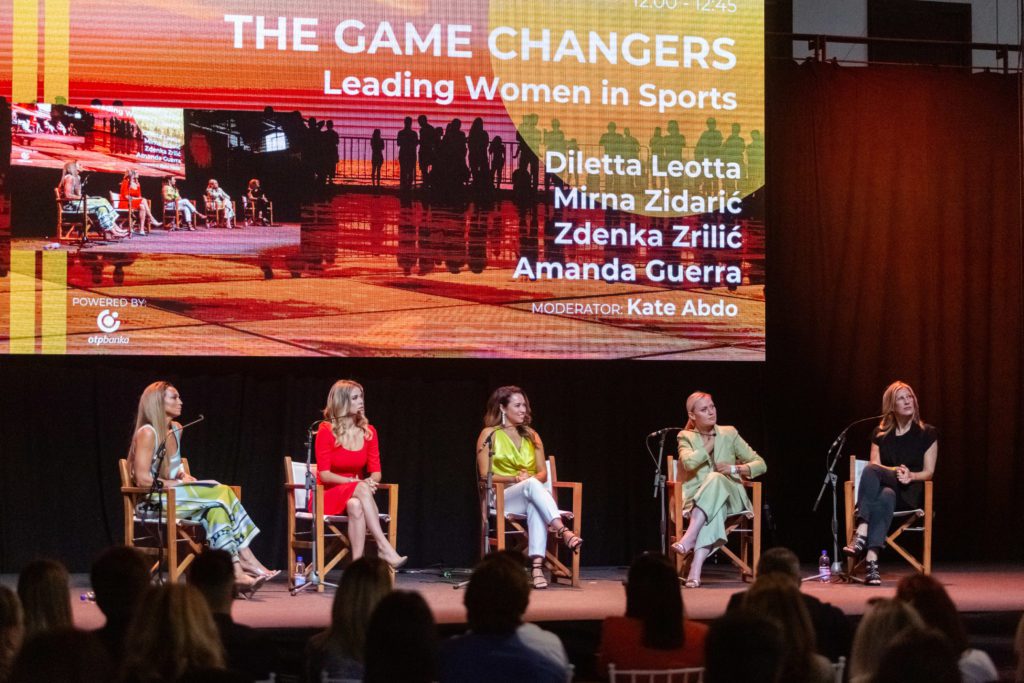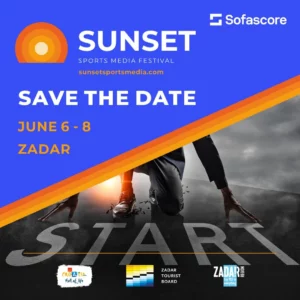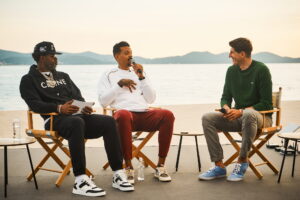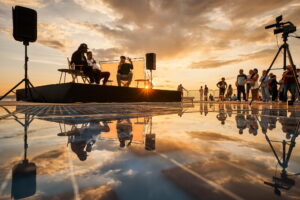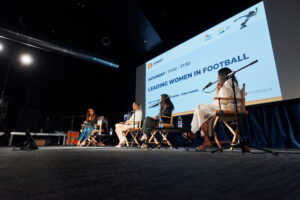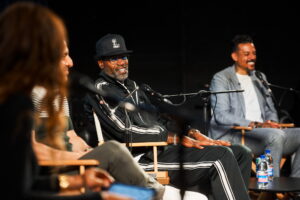Diletta Leotta (Serie A Broadcaster for DAZN), Amanda Guerra (CBS Host) and Zdenka Zrilić (Founder of Zadar Basketball Tournament), Mirna Zidarić (RTL Host)
Moderator: Kate Abdo (CBS Host)
The sports world has historically been dominated by men, but the times are changing. This year Barcelona set a women’s soccer attendance record of 90,000-plus, not once, but twice. Women’s voices are being heard along the coaching sidelines and in the broadcast booth. There is a long way to go, but gender diversity across sports – both on and off the field of play – is beginning to gain traction. How has this happened? What more can be done? And how much longer will it take for women to gain real empowerment in sports?
Amanda Guerra, an American Latina woman says “In the beginning of my career, I was working in news. I almost I didn’t get into sports. It was intimidating because the few women sports broadcasters I would see were so few and far between. I had a sit down with another female sports reporter at the beginning of my career who gave me a pep talk, and said whether its on the field and off, representation of females in sports journalism is so important and just stay true to yourself.”
Zdenka Zrilic says “As a woman, I didn’t have to struggle too much to break into a male world here in Croatia. I have a great team who is under me helping me, and 70% of my team are women. Women can do whatever men can do, sometimes even better.”
Mirna Zidarić, the face of sports broadcasting in Croatia, says “Croatia was a modern society 40 years ago because we had the first women Editor In Chief of sports department, who was also the first in Europe, and she was my first role model. For me, it was always normal to do this job. Working in TV is hard work, and many women give up sooner than men.”
When talking about challenges she faced when starting her career, Diletta Leotta says “there were challenges for me in the beginning. I remember being obsessed with being perfect. It was not easy to get into this male dominated world and in the end, I sometimes lost my authenticy. But now, I have enough experience to be me – all the time. This is one of the most important things that I’ve learned. I am not a robot, I am not perfect, and I love my personality so why can’t I show it off? And that’s what I try to do with every interview I do. I interview many male athletes on a daily basis, and it’s a great thing that I can be myself and not have to worry what they are thinking about me.”
Abdo says “it can be a scary thing to be your true authentic self at times. As a woman, you’re very conscious of how you are going to be perceived. I am conscious that 90% of my audience is male so it’s walking a tight rope sometimes. And it’s balance I work very hard to keep.”
Guerra adds “A lot of times, I am confident in my work. I know I can do my job. As a female, you’re based on what you look like and what you say, and I constantly think about that. ‘Did I say the right thing? Am i wearing the right thing?’ As a woman in the sports world, a lot of us are still timid to have an opinion because of the way it can be perceived.”
Zrilic says ”Thankfully, I have always believed we are equal to a man. The key is how we present ourselves: with your project, company, whatever it may be. We sometimes experience having to work harder than a man, but we are the same.
When speaking about female representation in the Croatian sports industry, Zidarić says “In Croatia, it’s normal for women to do something in sports as equal as a man. Whether it be athletes, sports broadcasters, agents, whatever. My entire life in Croatia, I grew up watching women on television.”
On the topic of what responsibilities these trailblazing women have as role models, Abdo says she feels a responsibility to prove to herself and to the entire industry.
Leotta adds “The problem is not just about women and sports, it’s our society. Football for example is just a mirror of where our society is reflected. It’s more about gender equality. Maybe we are now ready to experience an inclusive show. Not just because I like to see the bright side of life, but I think we are taking the important steps in gender equality. My team is 40% women and we are only growing.”
In the Croatian sports media industry, Mirna says “I feel that women are paid less than men. Twenty years ago, my boss told me I could do the interviews but told me I had to wear a mini skirt. The next day, I came in a blazer and pants, and I did such a great interview, but my boss was mad because I didn’t wear what he wanted me to. That was the moment where I decided “I will be equal.”
On advice to younger girls looking to break into the sports industry, Mirna says “Trust the process. The rest will come when you’re ready.”
Zrilić says “maybe sometimes as women, we analyze situations too much. Sometimes in life, if someone gives you an opportunity, you have to accept it, and just jump. Don’t think too much about it, and then later think about how you’re going to tackle it, but you always have to trust yourself.”
Guerra says “start to take that leap of faith earlier. I waited ten years to switch from news to sports. Be brave, clear out the noise and stay on the path. With social media, everyone has an opinion, and they will tell you what they think whether you want to hear it or not, but you have to clear that out and keep trailblazing.”
When Leotta started her career she says she was the only female on the field. “It was strange for a women to be commentating a match. One month ago, I was covering a Juventus game and I looked around and there were eight other female broadcasters on the field. It was amazing.”
With the rise of social media and the attention it brings to female broadcasters, the panel of women all agreed that there is more attention and sometimes sexist comments made towards female journalists.
On ignoring negative comments on social media, Diletta says “I receive countless comments. In the beginning it wasn’t easy but one day, I decided to focus on just working, doing my best, and not let other people influence my work. For me, as for many other women, its important to switch people’s view on your public appearance onto your work.
She adds “Many people judge me for the way I dress, or my style, even if they don’t know how many sacrifices I’ve made in my life. In my 20s, I woke up every day at 4 am to go to work, and that paid for my law degree. That experience gave me the work ethic and taught me how to approach this industry. I never gave up, and always believed my dreams.”
Abdo adds “With social media, there are so many voices. We have so many people to impress. You have to be accepted by the audience, but also by your bosses. What I think works best on camera is being authentic and yourself. People may dislike you, but you need to stay true to yourself. As a young person, you want acceptance but it’s important to shine your true light.”
All the women on today’s panel have faced and still face various challenges.
On the biggest challenge of her career, Diletta says “it was to be myself. It’s one of the most important things you can do in your job. At the beginning, I felt like I needed to be perfect. But it’s not true. We’re all humans. You can show off your personality all the time, and that was a challenge for me in the beginning.
She adds “I want to see more and more women represented in sports: journalists, referees, players. I hope that will be the norm, not the exception. I think women in football are exceptional, and should not be the exception.
Adbo says “I love to watch and observe people who are talented at what they do, and take parts of each of them to better my career. I would love to see women not compared to other women, not women compared to other women broadcasters. My ambition is always to be better than the male broadcasters. I think all the women on this stage are deserving of that right.”
“I remember the first time I saw a woman on the sideline as a referee and I was so excited,” Guerra says. “I want to get to the point where we’re not thinking about it and it’s just a fact that a referee can be a male or female.
